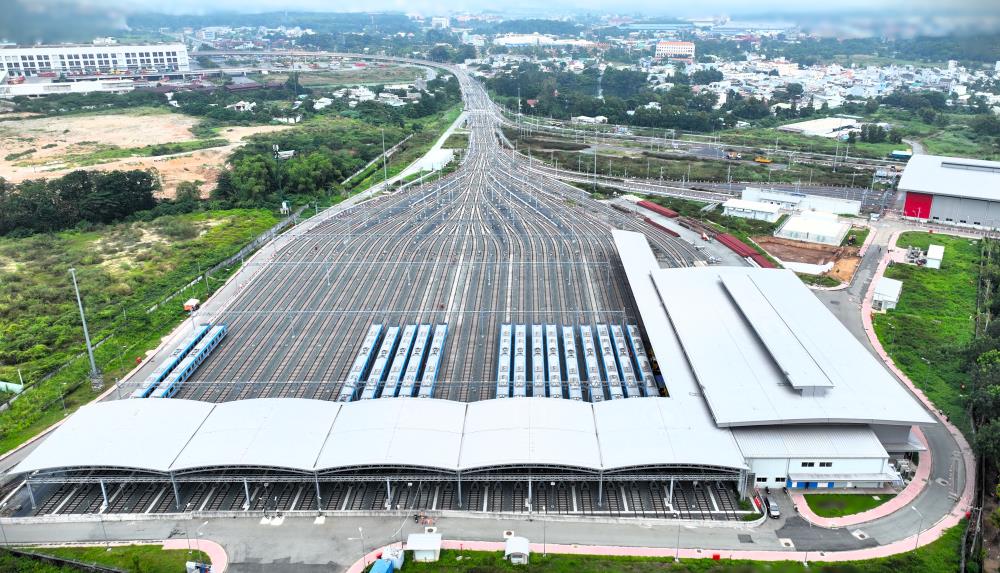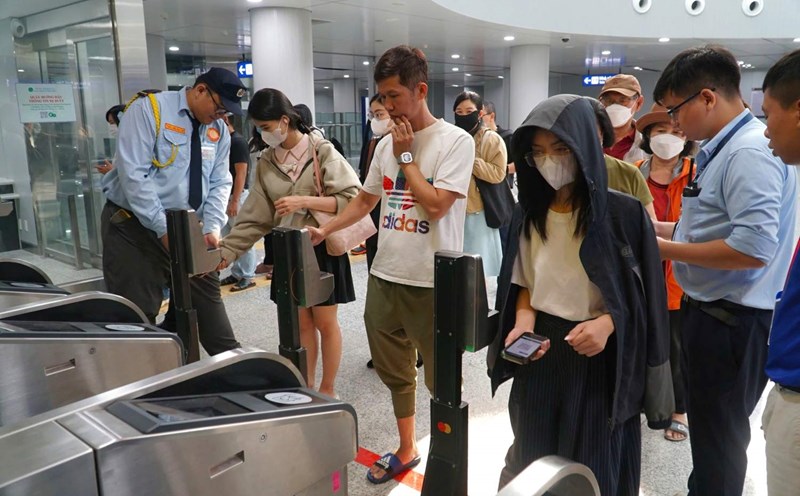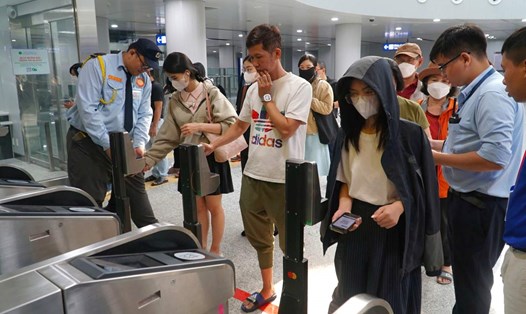The above information is stated in the document of the Ho Chi Minh City Urban Railway Management Board (MAUR) sent to the Department of Planning and Investment on the supervision and overall investment assessment of urban railway projects in 2024.
Regarding the settlement of complaints on Metro Line 1, MAUR said that it has carried out procedures to establish a Dispute Board (DAB) for the CP3 package contractor - Hitachi Company.
The establishment of DAB aims to resolve problems related to arising costs and disagreements between investors (MAUR) and contractors under the direction of the Prime Minister. The Ho Chi Minh City People's Committee has also requested relevant ministries and branches to provide guidance and give opinions on this content.
However, Ho Chi Minh City received comments that DAB's costs were not included in the total investment structure and were not included in the project's loan agreements.
In addition, based on Vietnamese law and the FIDIC contract, DAB's decision is not subjective such as the referee's verdict but is "advisory" and "good balance". Therefore, the implementation of DAB's decision has not ensured strictness according to Vietnamese law.
After reviewing current regulations and consulting with ministries and branches, the Ho Chi Minh City People's Committee has notified the Embassy of Japan about not applying the DAB mechanism to CP3 contracts at this stage.
Instead, the city assigned MAUR to negotiate directly with senior leaders of Hitachi to find solutions to resolve the problems.
Currently, MAUR has implemented 4 special temporary payments to Hitachi during the training phase of the NJPT consulting consortium (representative of the investor) and the trial phase. At the same time, new contract appendices were also signed to adjust payment levels, creating maximum favorable conditions for contractors.
In addition, MAUR is also actively reviewing the arising costs of the CP3 package to ensure compliance with contract terms and legal regulations.

According to MAUR's report in June 2024, the CP3 package undertaken by Hitachi includes the items of purchasing electromechanical equipment, locomotives, railways, training and maintenance.
The contract was originally scheduled to be implemented from August 2013 to April 2018 (a total of 244 weeks). However, due to many problems, the progress was delayed, causing the contractor to request an extension of the completion time by 4,124 days.
After evaluation, the NJPT general consulting consortium proposed a maximum extension for Hitachi of only 2,161 days.
Disagreeing with this conclusion, Hitachi has sued the investor at the Vietnam International Arbitration Center (VIAC), requesting a minimum extension of 2,773 days and compensation of about VND527 billion.
The total arising costs that Hitachi unilaterally put forward for extending the completion progress of Metro Line 1 to 23.721 billion yen (nearly 4,000 billion VND).
Metro No. 1 started construction in 2012, with a total investment of more than VND43,700 billion, nearly 20 km long from Long Binh depot (Thu Duc City) to Ben Thanh (District 1).
After many delays, Metro Line 1 has been in commercial operation since December 22, 2024.











